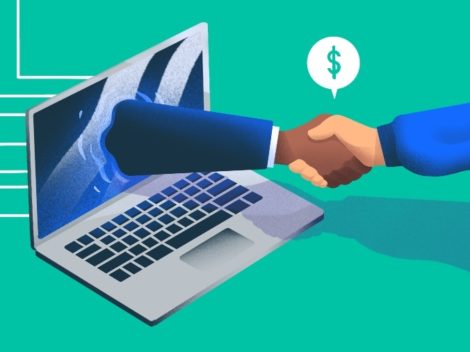Austin’s venture scene went on a roller coaster ride in the first three quarters of this year: down, then way up, then way down.
As 2017 comes to a close, we thought it would be fun to ask some local experts on what the city’s startup scene could look like in the year ahead.
Follow Crunchbase News on Twitter & Facebook
A common theme that came up was that Austin, and Texas as a whole, is following the nation’s lead and more investors are getting into new technologies such as artificial intelligence (AI), machine learning, and blockchain technology.
In addition, new funds that recently came online will be ramping up in coming months. For example, in September, former Austin Ventures general partners Chris Pacitti and John Thornton, along with former Bain consultant Sam Kentor, unveiled Elsewhere Partners. The Austin firm plans to invest in business software companies that are located outside of the traditional venture capital hubs of New York, Boston, and San Francisco.
As further evidence that the early-stage ecosystem continues to develop, accelerators such as Sputnix ATX, which was founded by Oksana Malysheva and Joe Merrill, also came online. Unlike traditional incubators or accelerators, Sputnix ATX is focused on early-stage companies that already have a minimum viable product and at least one customer.
Of course, those I talked to are active in the Austin community, so they’re naturally biased about what’s ahead for early-stage funding in the region. But as a whole, they are optimistic about 2018. Here’s what they had to say:

Matt Mcdonnell, Partner at Notley Ventures
I think you’re going to some reshuffling and refocus. Austin historically has been an early stage seed investment city with a few key big players. But that’s changing. I’ve been doing a presentation series with Capital Factory and a couple of the slides focus on funds in town people should be aware of. A few years ago, there were only a few. Today, I can barely fit them all on two slides.
We’re starting to see more collaboration among Texas cities, which is crucial. That should continue into next year. I also think Austin will continue to build its own identity. People used to define this region’s venture capital market by comparing it to San Francisco or New York. And that’s totally OK because we’re not trying to be another coast. Maybe San Francisco has a relatively higher proportion of unicorns. But there’s this other thing we’re pretty good at in Texas. And, that’s turning out positive successes over and over again. Austin has always been well positioned to lead the rise of the “middle” markets. There’s all kinds of other opportunities here. And I think a lot of funds are not chasing that $1 billion exit but instead a bunch of $100 million exits.
Austin is also well-positioned to do some great things when it comes to blockchain and AI. We’ve got a number of great companies doing both and cryptofunds are launching all the time.
Overall, I think Texas is going to eat everybody else’s lunch as the four major cities – Dallas, Houston, Austin and San Antonio – continue to cooperate and become a venture ecosystem in the way people talk about the Bay Area.
Chris Shonk, General Partner at ATX Seed Ventures
We’re currently closing out our second fund in which we are raising $50 million. In the last quarter and in this quarter, we closed on a number of follow-on rounds as well as Series A rounds.
Although we are a Texas-focused fund, most technology roads in Texas lead back to Austin in some form or fashion. Historically, Austin has been very strong in software, especially in enterprise software and we’ve seen lots of exits, experienced executives and venture capital flowing. But it’s also growing when it comes to ecommerce – look at uShip, RetailMeNot and HomeAway for example.
But what a lot of people may not realize is that Austin is one of the top three global cities for video games and interactive content. I think that will continue to expand in 2018. You’re seeing a lot of companies move here or have major offices here after an acquisition. In years past, companies would acquire here and then move operations back to the West Coast but we’re seeing – and I expect we’ll continue to see – more companies choosing to grow their staff here or build a second corporate office in Austin.
I believe next year, the early stage scene will continue to be impacted by more startups being founded by people who have trained by the region’s large tech employers such as Google, Amazon, Dropbox, Facebook, and Apple. The University of Texas at Austin (UT) also continues to produce more talent who start, launch and growth companies because they don’t need as much money to get going here as they do on the West or East Coast.
Overall in the state, aerospace, agriculture, real estate and energy continue to be big industries. AI is growing. There’s so much money and experience in the software industry so that is naturally leading to the creation of new software technologies.
Marc Nathan, Vice President Of Client Strategy Of Austin-based Miller Egan Molter & Nelson LLP’s
All indicators point to a robust funding environment for early-stage companies in Texas in 2018. There have never been more startups that demonstrating early client traction at the same time that there are more active funds, angels and private equity sources looking to deploy capital.
There are several new funds coming online and historic funds are raising this year, not to mention more investors are getting into new technologies like AI, machine learning, and blockchain. We will continue to see consolidation and technology innovation in traditional businesses like health care, real estate, banking, legal and accounting which will offer opportunities for both new startups and investors that are willing to tolerate risk for outsized returns in the next few years.
Answers were lightly edited for clarity.

Stay up to date with recent funding rounds, acquisitions, and more with the Crunchbase Daily.





![Illustration of a tidal wave - Blank - Quarterly Reports [Dom Guzman]](https://news.crunchbase.com/wp-content/uploads/Quarterly-Blank-470x352.jpg)

![Illustration of a guy watering plants with a blocked hose - Global [Dom Guzman]](https://news.crunchbase.com/wp-content/uploads/quarterly-global-3-300x168.jpg)
67.1K Followers